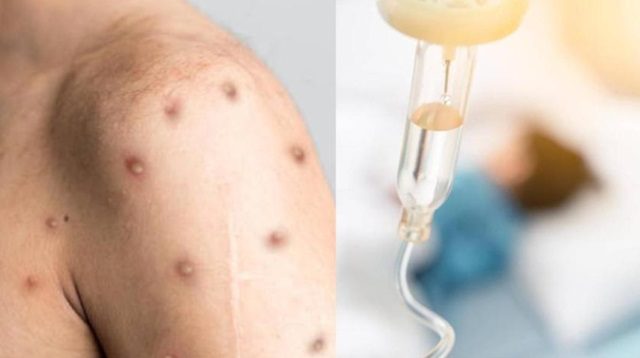BTN News: The recent rise in mpox cases, previously known as monkeypox, has sparked concerns worldwide, emphasizing the crucial need for awareness and preventive measures. Susana Montenegro, a nurse from the Instituto Español de Investigación Enfermera del Consejo General de Enfermería (CGE), underlined the importance of isolation for those diagnosed with mpox to prevent further transmission. With the resurgence of this viral disease, the CGE has rolled out a comprehensive guide on how to respond to a positive diagnosis, highlighting the role of vaccination as the most effective measure against the spread of mpox. While the disease shares similarities with smallpox, it’s transmitted through close, direct contact with infected individuals or contaminated objects, making personal hygiene and protective measures vital in controlling outbreaks.
Montenegro emphasizes that upon receiving a positive diagnosis of mpox, it is essential to immediately notify close contacts and monitor them for symptoms. Additionally, maintaining proper hand hygiene, disinfecting personal belongings, and avoiding contact with lesions are critical steps to reduce the risk of spreading the virus. The nurse also stresses that touching the lesions can significantly increase the chances of transmission, further underscoring the need for caution.
Vaccination plays a pivotal role in preventing the spread of mpox, both as a pre-exposure and post-exposure measure. The CGE has been vocal about the importance of completing the full vaccination schedule, particularly as mpox cases continue to surface in different regions. The most recent data from Colombia reveals that between May 2022 and August 2024, there were 4,257 reported cases of mpox, signaling a need for heightened vigilance and vaccination efforts.
The symptoms of mpox typically begin with fever, headache, and muscle aches. However, once the fever subsides, a characteristic rash appears, usually starting on the face before spreading to other parts of the body, including the palms of the hands and soles of the feet. These symptoms can be mistaken for other illnesses, making it crucial for healthcare professionals, especially nurses, to be well-informed about the disease’s signs, modes of transmission, and current health guidelines.
Montenegro also highlights the critical role nurses play in educating and raising awareness within communities, particularly those at higher risk. Effective awareness campaigns can aid in the rapid detection and control of outbreaks, thereby minimizing the impact of the disease. The CGE urges healthcare workers to stay updated on the latest recommendations and to advocate for the use of personal protective equipment (PPE) when dealing with suspected or confirmed cases of mpox.
Florentino Pérez Raya, President of the CGE, echoes the call for widespread vaccination, emphasizing that healthcare professionals are ready to guide and support patients through the process. According to Spain’s Ministry of Health, only half of the 40,000 individuals who began the vaccination process have completed the full course, leaving a significant portion of the population vulnerable. Pérez Raya encourages those who haven’t finished their vaccination regimen to do so as soon as possible and calls on those eligible for the vaccine to take action.
Beyond personal precautions, Pérez Raya also stresses the importance of protective measures within healthcare settings, particularly during high-risk activities, such as treating infected patients. The CGE is urging health administrations to ensure that adequate PPE is available for healthcare workers, including gloves, masks, and face shields. This is a critical lesson learned from past health crises like the Ebola outbreak and the COVID-19 pandemic, where insufficient protective gear led to increased transmission among healthcare workers.
Lastly, the CGE strongly condemns any stigma or discrimination faced by individuals diagnosed with mpox or those in communities currently targeted for vaccination. Such negative reactions can hinder public health efforts by discouraging individuals from seeking timely medical care or vaccination. By fostering a supportive and informed environment, the spread of mpox can be more effectively contained.
In conclusion, the battle against mpox requires a multifaceted approach, including isolation of infected individuals, notification and monitoring of close contacts, rigorous hygiene practices, and, most importantly, widespread vaccination. Healthcare professionals, particularly nurses, are at the forefront of this fight, not only in providing care but also in educating the public and advocating for the resources needed to protect both patients and healthcare workers. As mpox continues to pose a threat, it is imperative that these strategies are implemented and supported at all levels of society.


